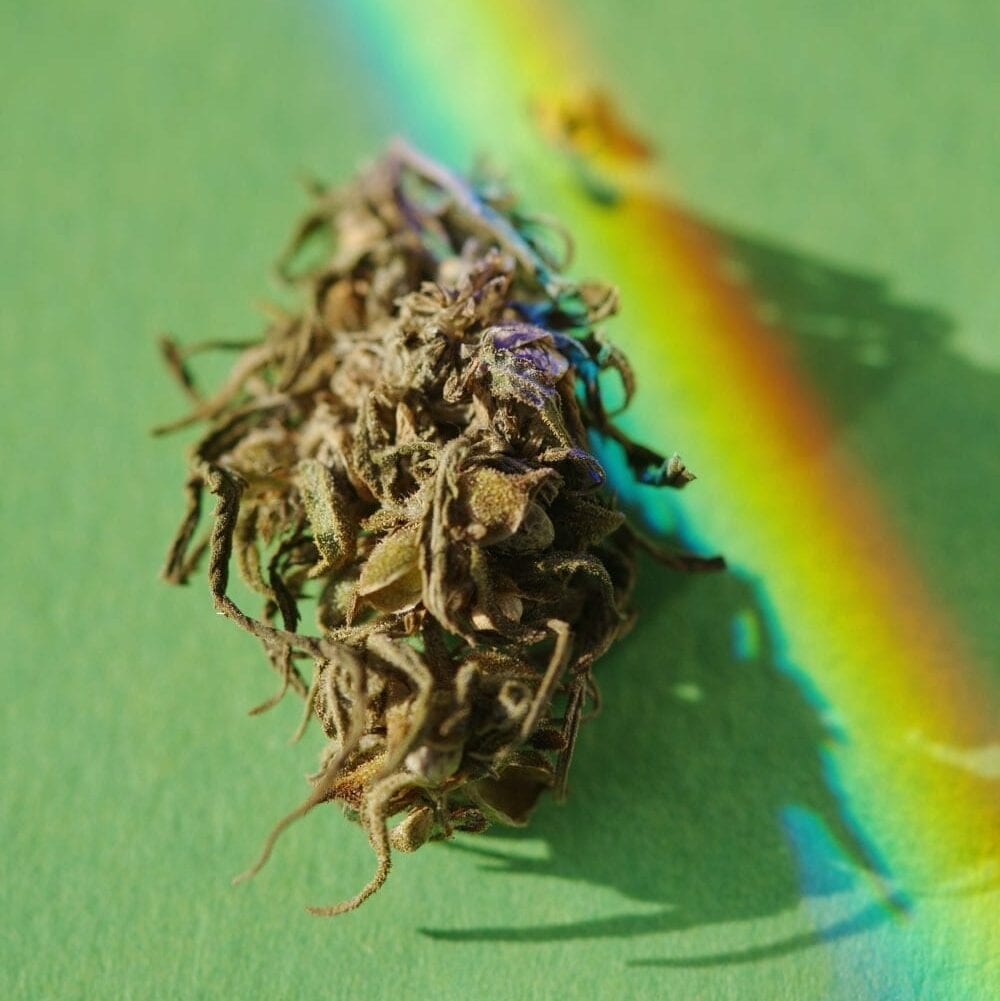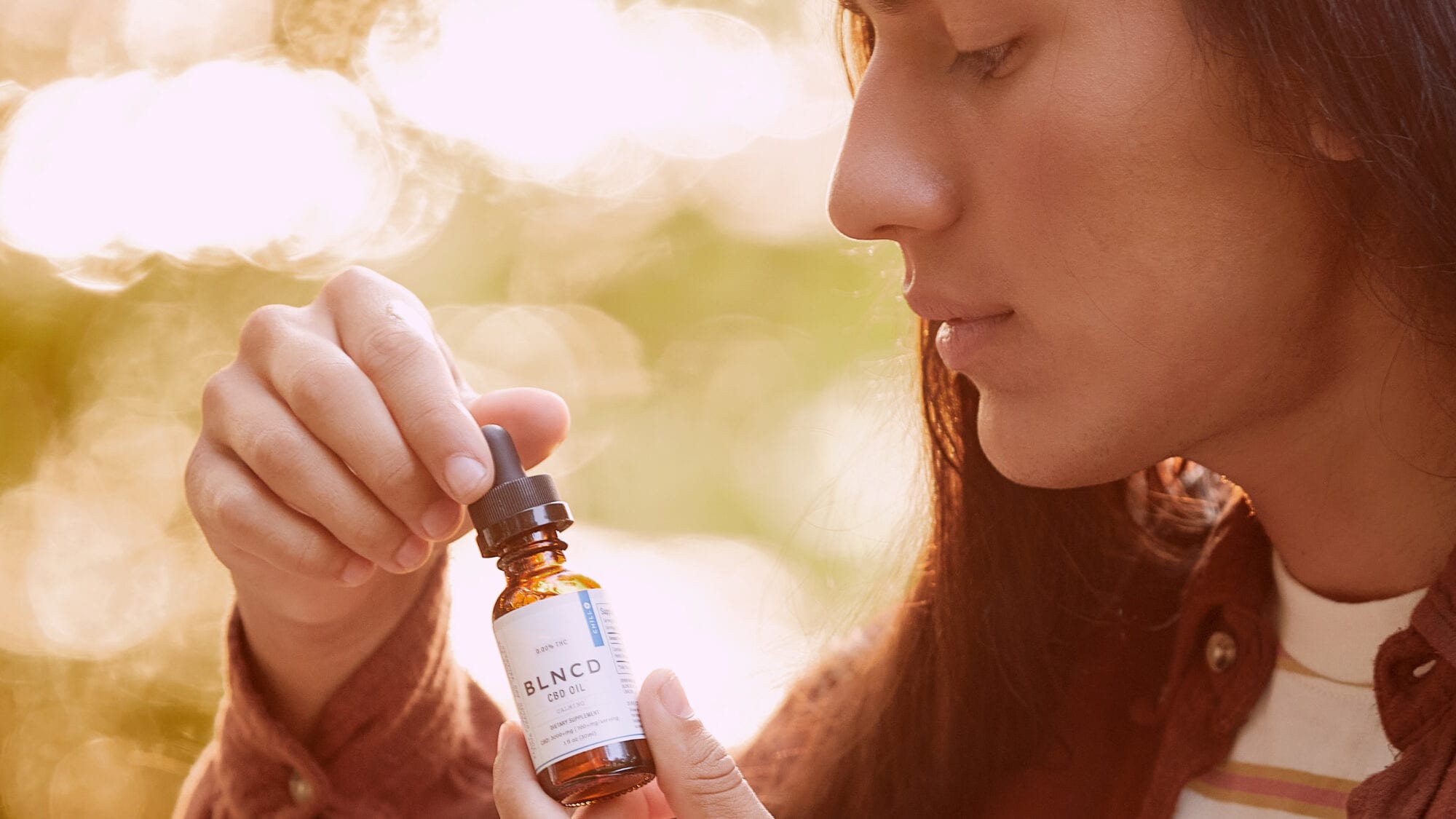
CBD vs. THC (The Big Breakdown) January 8, 2021

Cannabis is becoming less restricted and more readily available in many different forms around the United States. For those looking to discover the benefits of cannabis sift through various options, it’s important to understand the two most distinctive compounds: CBD and THC.
A quick breakdown:
- CBD stands for cannabidiol and is a non-psychoactive compound found in high concentrations in hemp.
- THC stands for tetrahydrocannabinol and is a psychoactive compound that produces the high traditionally associated with maijuana.
Both of these amazing compounds interact with your endocannabinoid system in unique ways, offering a wide range of benefits that you can take advantage of for overall wellbeing.
Before we dive too deep into the various differences between THC and CBD, we should understand how these compounds interact with our endocannabinoid system.
What’s the Endocannabinoid System (ECS)?
The endocannabinoid system is a central regulatory system that impacts our biological processes in unique ways. It’s an information highway that connects our minds and bodies — and an essential part of homeostasis.
There are three major players in the endocannabinoid arena:
- Endogenous cannabinoids (endocannabinoids)
- Cannabinoid receptors
- Enzymes
This complex system works to provide a wide range of benefits to our body’s regulatory functioning, including helping with digestion, appetite, mood, chronic pain, and more. Cannabinoid receptors live on cells throughout the human body, such as the central nervous system, brain, glands, connective tissues, and even immune cells.
What’s interesting is that you don’t need to consume cannabis products to have or experience the benefits of an endocannabinoid system. The history of cannabis and CBD is interesting, and only in 1988 did the ECS get discovered by Allyn Howlett and William Devane.
As mentioned, both CBD and THC interact with our endocannabinoid system and its receptors. Many factors can affect how these interactions occur, including compounds like terpenes, which can lead to what’s known as the entourage effect.
Terpenes are responsible for the aromatic profile of many plants, including cannabis. If you’re looking for more information on terpenes and how they can influence your cannabis experience, check out this article.
CBD vs. THC: The Foundations
Now that we have some basic understanding of how cannabinoids interact with our bodies, let’s explore the chemical structure of CBD and THC differ.
Interestingly enough, both CBD and THC have chemical structures that are incredibly similar to the body’s natural endocannabinoids. Unsurprisingly, that’s why they’re so compatible and interact easily with cannabinoid receptors. CBD and THC also have a comparable molecular structure, with 21 carbon atoms, 30 hydrogen atoms, and 2 oxygen atoms for both.
However, the major difference comes in their arrangement, so they affect the human body in drastically different ways. CBD doesn’t bind especially well with receptors, while for THC, it’s a match made in heaven. THC binds to CB1 receptors in the brain and, in turn, causes a high or psychoactive effect.
What Do These Compounds Feel Like?
For many of you looking to try cannabis products, you’re likely wondering how you’ll feel when you consume them.
CBD
CBD is non-psychoactive and is tolerated extremely well by most people. While some side effects can occur if combined with other medications, it’s typically an enjoyable experience all around.
Some benefits include:
- • Relaxes overworked bodies
- • Relieves tension
- • Lifts mood
- • Promotes healthy sleep
- • Supports the immune system
- • Calms the mind and body
- • And more
THC
As previously stated, THC is a psychoactive compound. However, it’s not always tolerated well. While many experience a sense of calm and euphoria, others may experience feelings of paranoia, dry mouth, increased heart rate, or other less-than-appealing effects.
Some benefits include:
- • Promotes sleep (with indica dominant strains)
- • Boosts energy (with sativa dominaant strains)
- • Increased appetite
- • Relief for temporary stomach discomfort
- • Reduced muscle stiffness
- • Easing temporary nausea
- • And more
The Legality of Cannabis
One of the biggest contrasts between THC and CBD is how they are treated by the law. Over the last few years, a lot has changed with both THC and CBD.
Hemp was removed from the Controlled Substances Act thanks to the 2018 Farm Bill. However, there is still some confusion surrounding how federal laws view CBD. Let’s break it down.

Understanding CBD
CBD derived from hemp is legal on a federal level (if it contains .3% or less THC) because hemp plants do not contain enough THC to produce psychoactive effects. Hemp legality was drastically changed in the 2018 Farm Bill which allowed for its growth, cultivation, and production.
Understanding THC
On the other hand, THC is not legal in all 50 states and has a diverse range of restrictions depending on which state it’s in. When looking at the differences between CBD and THC, you can draw a parallel between hemp and marijuana.
- Hemp contains a significant amount of CBD but very little THC.
- Marijuana contains a significant amount of THC but very little CBD (depending on the strain).
So, where is marijuana legal? Well, marijuana is fully legal, both medically and recreationally, in Washington, Montana, Oregon, Nevada, California, Arizona, Colorado, South Dakota, Illinois, Michigan, Washington D.C., New Jersey, Massachusetts, Vermont, Maine, and Alaska.
There are only six states where marijuana is 100% illegal. Those states include Idaho, Wyoming, Kansas, Tennessee, Alabama, and South Carolina. The remaining states include some medical, decriminalized, or a combination of medical and decriminalized statutes.
Know what’s legal in your state.
Before buying or using any type of cannabis product, we recommend checking what’s legal in your state. This helpful map is updated to reflect changing laws and legislature and can be a great resource for anyone curious about marijuana legality.
CBD and THC on Drug Tests
This is an area of concern for many cannabis users and can be a bit confusing for those looking to try out CBD products. If you’re wondering about drug tests and CBD, we’re here to help.
A positive drug test could result from using CBD — as everyone has different biochemistry and drug test sensitivities vary. Probation officers or employers will test for THC or THC metabolites, not CBD. With that being said, full spectrum hemp products still contain trace amounts of THC. So, for oral or urine drug tests, it’s extremely unlikely but possible for CBD users to trigger a positive drug test.
Hair tests, on the other hand, will not detect THC if you’re only using CBD products. This is because these tests are designed to detect long term use.
If you’re worried about drug tests, we’d recommend one of two options:
- Isolate CBD
- Broad-spectrum CBD
Both of these types of CBD undergo a remediation process that eliminates THC from the final product. Trusted CBD manufacturers will also have information about how much THC is in their product — so be sure to check the packaging. If you want to take it a step further, check out any third-party testing information that they provide to gain more insights.
Now You Know
With rapidly shifting cannabis laws and stigma, it’s important for those looking to try out products to know about CBD and THC differences. While THC is still not legalized nationwide, CBD has a wide range of benefits that many can take advantage of today. While it won’t produce the psychoactive effects many people associate with marijuana, it can still offer relaxation, mental clarity, stress reduction, healthy sleep, and so much more.
There are many options when it comes to CBD products, including CBD drinks, oils, topical solutions like lotions or salves, and even edibles.
If you’ve heard about all of the great things cannabis can do, you can discover those benefits for yourself through hemp-derived CBD. Make sure to find a trusted CBD company with third-party testing and sustainable cultivation practices. While the massive CBD boom in 2018 opened up new doors for many incredible growers and manufacturers, it also opened up the floodgates for those looking to make a quick buck. It’s important do your research and find a company with values and products that fit your lifestyle.